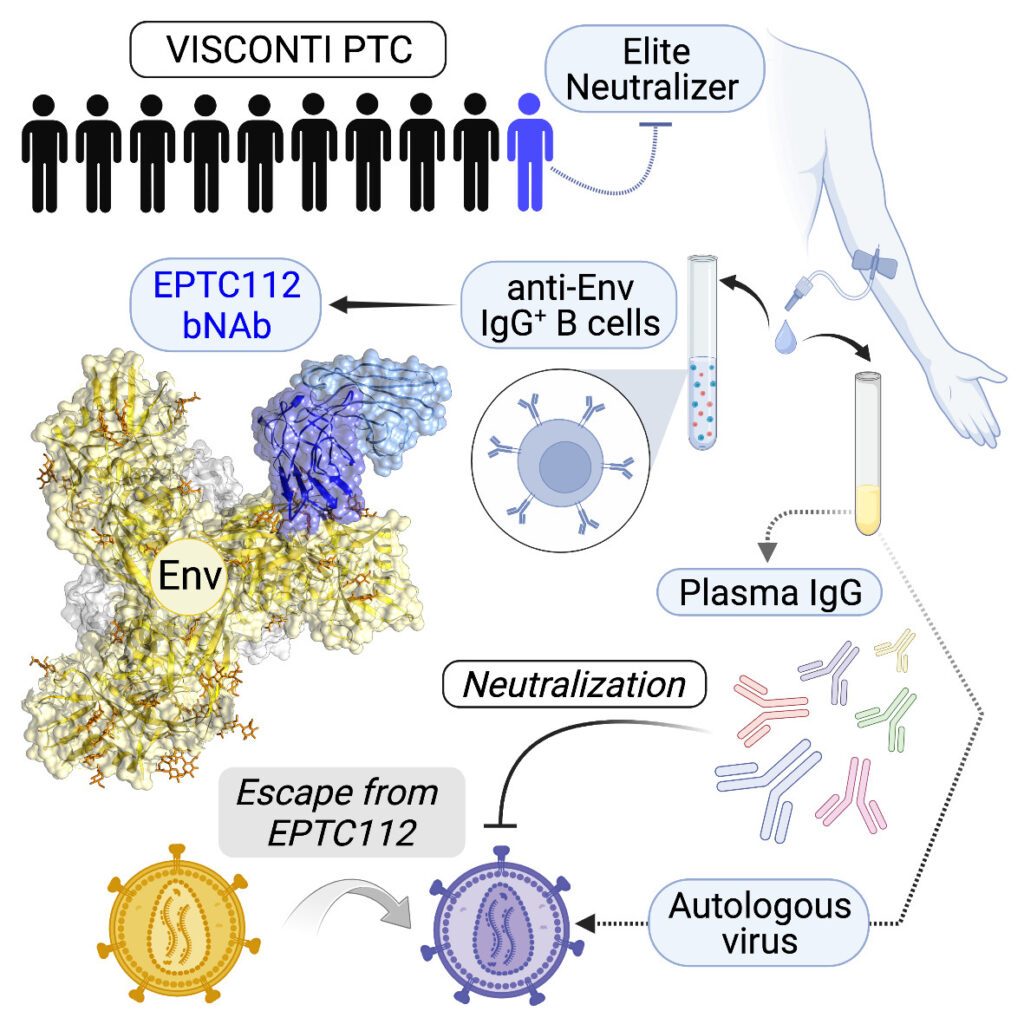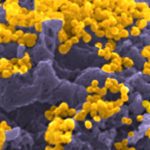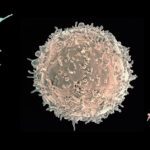Some HIV-positive patients off antiretroviral therapy can control their viremia on the long term. These so-called post-treatment controllers (PTCs) represent a unique opportunity to better understand how the human immune system can contain HIV-1 infection. Exploring data collected by the VISCONTI study (for Viro-Immunological Sustained COntrol after Treatment Interruption), a vast French cohort of PTCs, the team of Hugo Mouquet, in collaboration with Asier Sáez-Cirión, has described in one of these patients a broadly neutralizing antibodies (bNAb) B cell lineage, in which the antibody EPTC112 appeared as the broadest neutralizer. This antibody neutralizes about a third of the ~200 viral variants tested in vitro. It targets an epitope located in the glycan-V3 loop supersite of the HIV-1 envelope glycoprotein, and cryo-EM gave access to the precise localization of the molecular interactions between the antibody and the envelope protein of the virus. Although this EPTC112 antibody did not neutralize the autologous virus still circulating in this patient, plasma IgG were effective in neutralizing the infection, showing a concerted effort by the immune system to keep the viremia at low levels. This case study of a post-treatment controller reinforces the therapeutic potential of antibodies to achieve HIV-1 remission in the long term.

Source
Anti-V1/V3-glycan broadly HIV-1 neutralizing antibodies in a post-treatment controller, Cell Host & Microbe, July 10, 2023.
Read the press release: Remission from HIV-1 infection: discovery of broadly neutralizing antibodies that contribute to virus control




